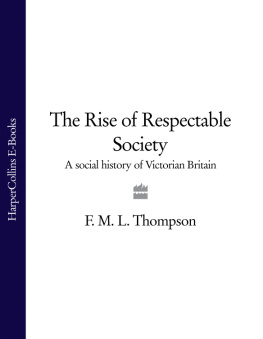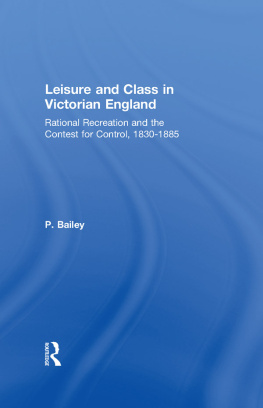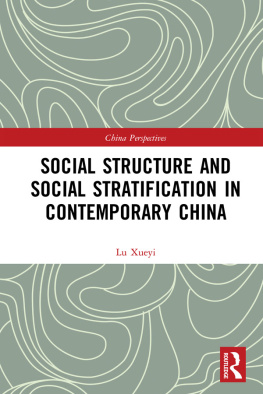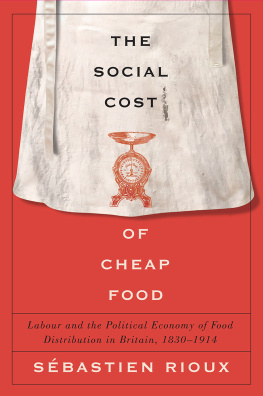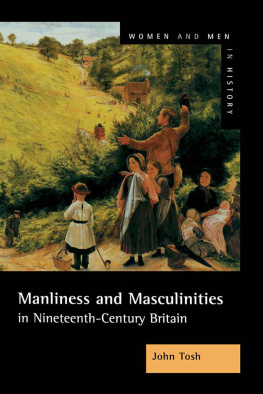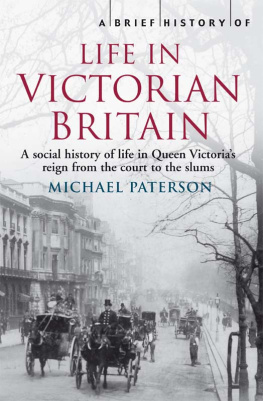
It has sometimes been remarked that all forms of history are becoming social history, and, less frequently, it has been claimed that social history is total history, alone capable of comprehending and articulating all facets of past human experience. This series, which aims to present in three volumes a view of the social history of Britain from the early eighteenth century to the mid-twentieth century, is not particularly attached to either proposition; it has no designs on the autonomy of other branches of history, though conscious of its close relations with economic history, and no pretensions to be all-embracing. It has the more modest and pragmatic aim of tackling the great outpouring of research and publication in British social history which has taken place in the last twenty years, and of attempting to integrate the fruits of these detailed and original studies into works which will be more accessible to students coming fresh to the subject and readers who have no time or inclination to scan a hundred books and articles in order to get the feel of a century. The aim, however, is also more ambitious than this may sound: the purpose is not to provide a survey and summary of what other scholars have said, but to construct an interpretation of continuity and change in society, in its structure, its institutions, its customs and habits, and its class and gender relationships. The three volumes cover the long eighteenth century, extending to 1830; the Victorian period; and the twentieth century. The editorial brief leaves each author to make sense of the material on his century in his own way: there is uniformity of structure in the thematic organization of each volume, but no uniformity of views, no party line. This is not a way of avoiding brickbats or shirking editorial responsibilities, it is just the way history works as a humane and liberal profession. If the result is a series which provokes discussion and stimulates further research and re-interpretation, that will be more than sufficient justification for the enterprise.
January 1988
F.M.L. THOMPSON
It is fitting that an Editor who announces that the time is ripe to take stock of the effects of the explosion of interest in the social history of Britain should be the first to respond to his own call, if only to demonstrate that it is possible to offer a synthesis whatever the hazards of being tripped up on this or that point by the specialists. The expansion of social history, moreover, has not been a simple matter of the unearthing of new facts, new information, and new material by researchers digging in previously unknown or untapped sources, although there has been plenty of that. It has been above all a redefinition and enlargement of the territory of social history using instruments and concepts adapted from social anthropology and sociology, as well as quantitative methods, alongside the older guides derived from political economy whether of liberal or Marxist varieties. Where matters of faith, doctrine, or ideology are involved the synthesizer is necessarily stepping through a minefield. Nevertheless, the very fact that social history is about ideas and ways of viewing the behaviour and relationships of groups, genders, communities, generations, and classes, and not simply about the facts of life although sex is an important and often central activity which earlier generations of historians preferred to sweep under the carpet means that no single overview can ever claim to be either comprehensive or definitive. Hence the present volume is offered as no more than one out of several possible ways of depicting and attempting to understand what made Victorian society tick, and how it developed.
An overview such as this, which attempts to be more than a plain survey, which tries to look at all levels of society and not simply at the working classes, and which seeks to present a seriously argued revision of Victorian social history, has to be selective. Rather than attempting to squeeze everything in, certain topics and themes have been sliced up, spread over several chapters, or set aside: some will think they have been ignored. Rural society, religion, social policy, the social dimension of politics, whether parliamentary or popular, the professions, and even aristocratic society, for example, may rightly appear to have been dealt with in a perfunctory fashion, or not at all. This is not because of any dearth of recent literature on these subjects; on the contrary, plenty of excellent work exists which would have been grist to another kind of synoptic mill. It is because the organizing principle for a dynamic anatomy of Victorian society dictated a different way of arranging material thematically, so that some familiar categories have either vanished altogether, or play relatively minor supporting roles. Readers should be warned, however, that this is not a textbook which claims to contain all they want to know, or need to know, about the social history of Victorian Britain. It is only fair to warn them that although it is a book about Britain, it is definitely Anglocentric. In a mechanical way Scotland and Wales may receive proportionately as much space as their populations contributed to total British population, about 12 per cent and 5 per cent respectively; but that is not offered as a justification for the neglect of the specifically Scottish or Welsh characteristics of social structure and social institutions, a neglect normally excused on grounds of limitations of space or knowledge, but in fact evidence of the persistence of national divisions within Britain which limit the possibilities of framing generalizations about British society.
A book of this kind does not rest upon original personal research, but upon research conducted, analysed, and published by other scholars. Rightly or wrongly the chosen format precludes the use of footnotes or detailed references, in order to sustain the flow of argument and avoid a parade of attribution, exegesis, and qualification which some readers might find irritating or superfluous. My complete reliance on the flood of monographs and articles is, I hope, sufficiently indicated by the short bibliographies linked to each chapter (but for convenience collected together at the end of the text), which list the works on which I have drawn. My sense of indebtedness to friends and colleagues, the authors of these works, is most inadequately expressed by the formality of these listings; it goes without saying that it is entirely due to their collective efforts that the opportunity of writing such a book as this exists at all. In one or two cases I have also listed unpublished doctoral theses, where they have been important sources of ideas and material. Only the exceptional reader is likely to have access to them; but the theses apart, the chapter bibliographies may perhaps serve as guides to further reading as well as acknowledgements of my debts.
June 1987
F.M.L. THOMPSON
CHAPTER ONE
Economy and Society
In the autumn of 1830 the Liverpool and Manchester Railway opened, in an atmosphere of triumphant excitement turned to tragedy by the fatal accident to Huskisson, and the Reform Parliament met in a buzz of expectant speculation at Westminster. The two events were not unconnected. The railway, the first locomotive-operated public line in the world, was the culmination of the application of the new technological skills, enterprise, and capital which had been transforming the British economy for the previous half century or more. The first Reform Act was an attempt to adapt political institutions to the alteration in the balance of social forces brought about by this transformation. While they shared these common roots and may both be viewed as at once instruments and symbols of the start of a new age, Reform essentially glanced backward with an approving eye on the traditional order which it sought to buttress, and the railway pointed forward into the unknown territory of urbanized and industrialized society. Therein lies the kernel of their message: not that 1830 was some decisive turning-point and outstanding landmark in social history, but that it stood in a particularly prominent way at the crossroads between the traditional and the new, neatly demonstrating the twin forces of continuity and change that are always at work in society.

